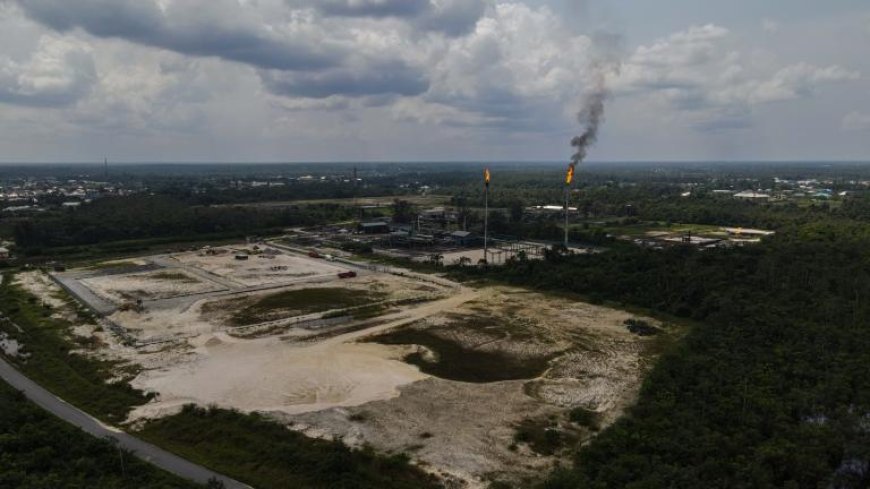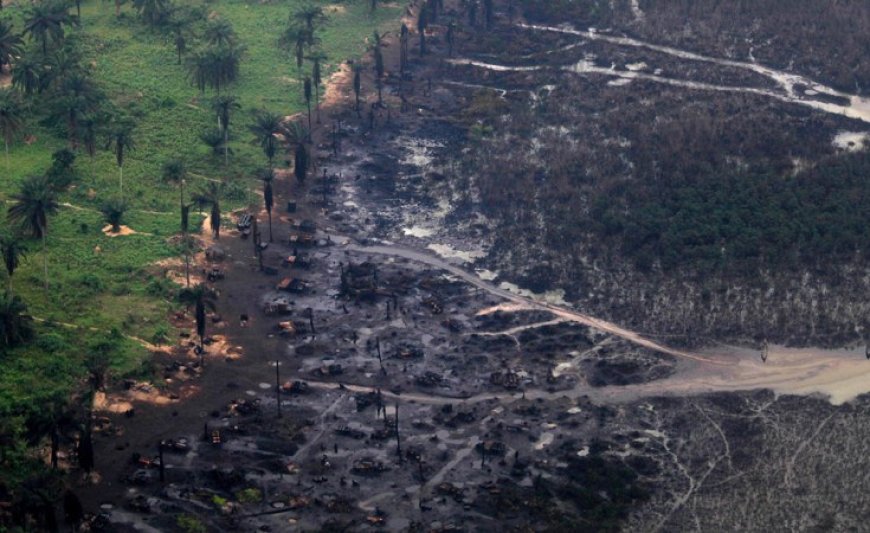“Shell Games: The Environmental Impact of Big Oil’s Hidden Players”
Explore the hidden environmental impact of shell companies used by big oil corporations like Shell, and learn about the challenges and efforts to hold them accountable. Shell companies often obscure the true activities of their parent corporations, leading to significant environmental damage. This article delves into the impact of these entities, particularly in regions like the Niger Delta, and highlights the efforts to increase transparency and accountability. Discover the role of international organizations, governments, and consumers in addressing this pressing issue.

In the shadowy world of corporate finance, shell companies often operate behind the scenes, masking the true activities of their parent corporations. Among the most notorious users of these entities are big oil companies like Shell, whose environmental footprint is as vast as it is controversial.
Shell companies, by design, are created to obscure ownership and operations, making it difficult to trace accountability. For Shell, these entities have been instrumental in managing assets, navigating tax laws, and, unfortunately, sidestepping environmental regulations. This practice has significant implications for the environment, as it often leads to unchecked pollution and ecological degradation.
One of the most glaring examples is the Niger Delta, where Shell’s operations have left a trail of environmental devastation. The region, once rich in biodiversity, now suffers from extensive oil spills, gas flaring, and contaminated water sources. Local communities, who rely on the land and water for their livelihoods, are left to deal with the aftermath of these environmental disasters.

Environmental activists have long criticized Shell for using shell companies to shield itself from liability. By spreading its operations across multiple entities, Shell can deflect responsibility and complicate legal proceedings. This tactic not only hampers efforts to hold the company accountable but also delays much-needed environmental remediation.
Dr. Jane Njeri, an environmental scientist, explains, “The use of shell companies creates a labyrinth of corporate structures that are nearly impossible to navigate. This makes it incredibly challenging to enforce environmental regulations and ensure that polluters are held accountable.”
Despite these challenges, there have been some victories. In 2021, a Dutch court ordered Shell to reduce its carbon emissions by 45% by 2030, a landmark ruling that set a precedent for holding corporations accountable for their environmental impact. However, the enforcement of such rulings remains a complex issue, especially when shell companies are involved.
The environmental impact of shell companies extends beyond oil spills and pollution. These entities often facilitate the exploitation of natural resources in vulnerable regions, leading to deforestation, habitat destruction, and loss of biodiversity. In many cases, local communities are left to bear the brunt of these activities, with little recourse for justice.
Efforts to combat the environmental impact of shell companies are gaining momentum. International organizations and environmental groups are advocating for greater transparency and stricter regulations. Initiatives like the Extractive Industries Transparency Initiative (EITI) aim to increase accountability by requiring companies to disclose their operations and financial dealings.
However, real change requires a concerted effort from governments, corporations, and civil society. Strengthening environmental laws, improving enforcement mechanisms, and promoting corporate transparency are crucial steps in addressing the environmental impact of shell companies.
As consumers, we also have a role to play. By demanding greater transparency and supporting sustainable practices, we can push corporations to adopt more environmentally responsible behaviors. The power of collective action should not be underestimated; together, we can drive the change needed to protect our planet.
In conclusion, the environmental impact of shell companies is a complex and multifaceted issue that requires urgent attention. By shining a light on these hidden players, we can begin to unravel the web of corporate secrecy and hold polluters accountable. The stakes are high, but with determination and collaboration, we can work towards a more sustainable and just future.
What's Your Reaction?















































































































